Japan Discovery How Japanese people think ”Harmony is the greatest of virtues”
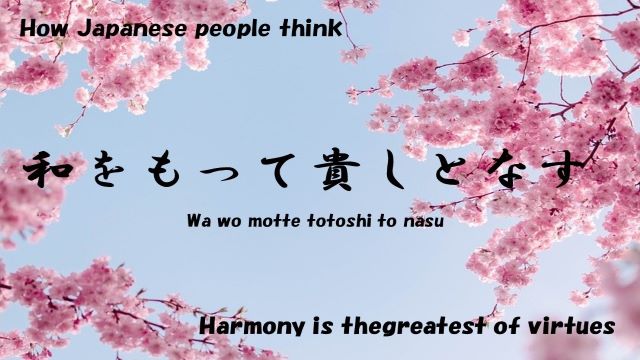
Until recently, everyone knew the phrase “harmony is the most important thing." It was said by Prince Shotoku. Prince Shotoku is also a person everyone knows. However, I am not so sure if the young people of today’s Generation Z know it. There is no doubt that the Japanese have inherited the spirit of valuing harmony.
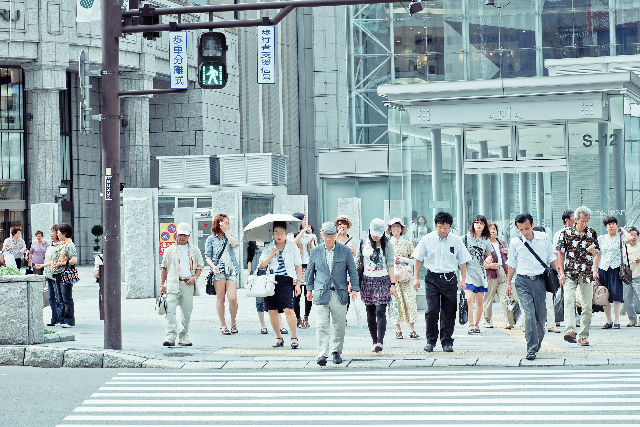
The culture of “sumimasen"
People who come to Japan from abroad may be surprised at how often Japanese people apologize and give in to each other.
“Sumimasen" (excuse me) is when ordering at a restaurant.
“Sumimasen" (I’m sorry) is also when buying something at a store.
Even when it is clearly not a situation to apologize, people apologize by saying “sumimasen." You can hear this phrase all over the city. Young mothers bow and say it to each other in front of kindergartens.
“Sumimasen" (I’m sorry)
“Ie Ie Sumimasen" (no, no, thank you for being sorry)
Then, in another place, office workers hold out their hands and give something to each other.
“Please, please" “You’re welcome, please go ahead" (Please, please) (You’re welcome, please go ahead)
This is an everyday scene in Japan.
“Sumimasen" is a magic word in Japan. If you don’t know how to talk to someone, you can’t go wrong by using this word. “Sumimasen" in this case expresses gratitude for making the other person go through trouble.
“Sumimasen" was originally a word of apology. The verb “sumi" was combined with the negative auxiliary verb “nu" to become “sumanu", and the polite form “sumimasenu" changed to “sumanai" and came to have the meaning of apology. It began to be used in the Meiji era and later became a word to express appeal and gratitude.
Japanese people use this word of apology frequently. When they make a mistake or think they are wrong, adults apologize immediately, except for small children. They don’t think that apologizing will put them at a disadvantage. If they are wrong, they apologize. By apologizing, they prevent conflicts from occurring. They value peace in the moment. Foreigners may find it difficult to understand the “way of thinking that does not try to protect oneself."
Even in arguments, they are not good at defeating the other person. Rather than pushing through their own opinion, they try to gather everyone’s opinions. It may seem impossible, but as everyone corrects their own opinion, it takes time, but in the end they reach a consensus. From a foreigner’s perspective, this may seem inefficient, but that is the Japanese way. The basis of this behavior is the idea of “harmony is the most important thing."
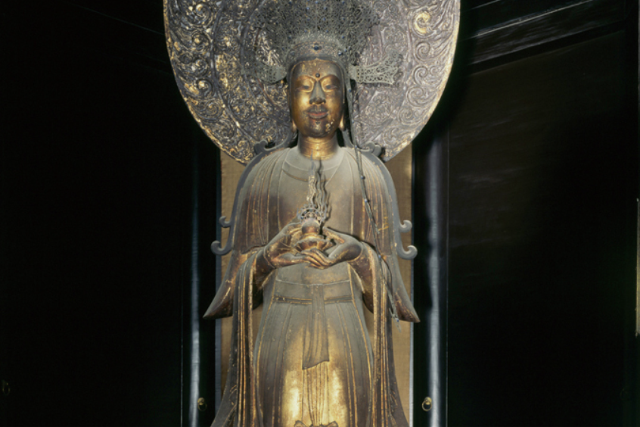
Harmony is the greatest of virtues
Japanese history began around the 6th century BC. Prince Shotoku was born 1200 years later, at the beginning of the 7th century, as the second son of the 31st Emperor Yomei. When he grew up, he governed as a regent. It is said that the prince was a genius who could handle cases while listening to eight people at once. He was called Prince Umayado(Prince of the Horse Shed), so it was said that he had a connection to Jesus Christ, but that is not the case.
Prince Shotoku established the moral precepts that people should follow as a 17-article constitution. “Make harmony the most precious thing" is in the first article. The “harmony" that the prince spoke of is people getting along without fighting. However, it does not mean forcibly suppressing your own feelings or ignoring the feelings of others. It is not about getting along only on the surface. It is about respecting others and cooperating.
The Japanese people have faithfully followed the prince’s teachings for 14 centuries. They valued his teachings even during the Sengoku period, when the country was divided into small countries and fought each other. Warlords in the Sengoku period believed it was better to avoid fighting and reduce losses than to fight and gain everything. When their patience reached its limit, they would fight even if they knew they would lose, but as a rule they avoided fighting if the conditions were acceptable. They tried to follow the teachings of “harmony."
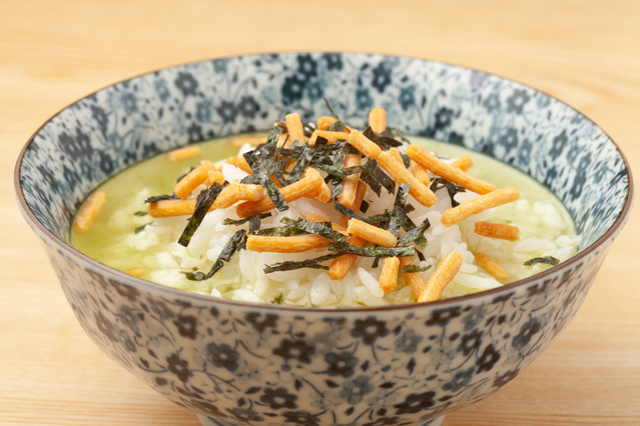
Kyoto’s Bubuzuke
Even in a society that values harmony, as long as people are human, there will be people who make claims that differ from mainstream thinking. There will be people who disrupt harmony. What do we do in such cases? Before explaining this, I would like to introduce the story of “Kyoto’s bubuzuke" in Kyoto, the ancient capital of Japan.
A person visits an old house in Kyoto. The conversation is lively and time passes quickly.
The owner of the old house says. Bubuzuke is a type of rice topped with tea.
“Daibu osoku narimashita. Bubudzuke demo dōdesu ka?" (It’s getting pretty late. Would you like some bubuzuke?)
The guest who was told this hurriedly got up from his seat.
“A~a, mō kon’na-jikan desu ka. Shitsureishimashita." (Oh, it’s getting late already. Excuse me.)
Do you understand this story?
“Arigatōgozaimasu. Itadakimasu." (Thank you very much. I’ll take it.)
Normally, you would say this.
But this “bubuzuke" is the owner’s way of expressing his intention that “It’s about time for you to leave." In Kyoto, there is a custom of conveying requests in a very indirect manner so as not to offend the other person.
Nowadays, of course, such extreme examples don’t exist. “Kyoto’s bubuzuke" is only talked about in a humorous way as a symbol of the closed-mindedness and nastiness of Kyoto people.
However, in Japan, and not just in Kyoto, there is a tendency to communicate indirectly, such as “It’s a good time now," rather than “It’s about time you left."You need the ability to convey requests in an indirect manner and the ability to understand that. Japan is a rather difficult society.
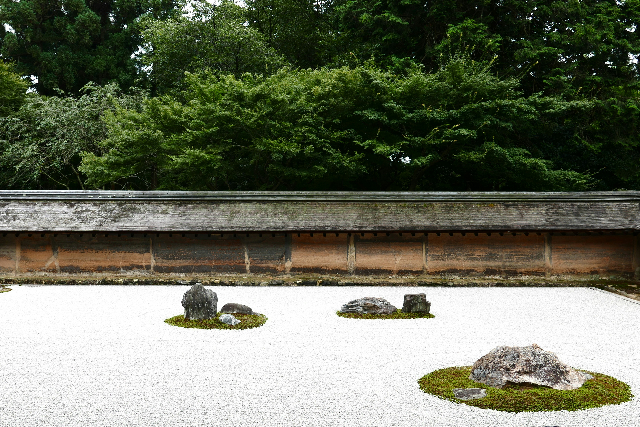
Those who disturb harmony are quietly eliminated
So how do we deal with people who disrupt harmony? First, the person is told in a roundabout way that they are “disturbing harmony." It is rare to be told directly that “you are wrong." If this continues several times and the situation does not change, what happens? The members of the group will disappear from around the person who is disrupting harmony. They will be ostracized.
They will quietly exclude the person without fighting. This is scary. And it is insidious. It is very difficult for foreigners to understand the feeling of disturbing harmony and the standards of exclusion. This is why Japan is considered exclusive and cold.
That is because even Japanese people sometimes do not understand the reason for exclusion. There are times when the person being excluded does not have the awareness that they are disturbing harmony, or does not understand the message that is being conveyed. The person who is excluding can also have a vague feeling that the reason for exclusion is shared, so it can be difficult to communicate it clearly. It would be good to say, “You are doing something wrong here," but they are strongly conscious of avoiding conflict, so they do not say it. Neither the person who is excluding nor the person who is excluded will understand what the problem is and continue on. It is a tragedy.
This method of maintaining group order without fighting has a long history. It is a method that can only be understood by those who share the same consciousness. It is a very insidious and malicious method that is difficult for third parties to understand. It can be said to be the dark side of the Japanese culture. However, this dark power is rarely exerted. As long as you follow Japanese culture, customs, and rules and do not become aggressive, you will be fine.
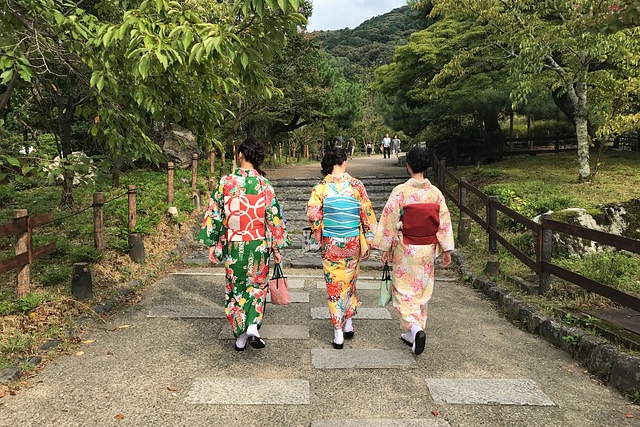
Harmony is the most important thing
The teachings of harmony are rare in the world, and have been maintained under the following conditions: a single dynasty, almost the same ethnic group, the majority Buddhists, an island nation with few invasions from other ethnic groups, and an abundance of water, so there was no need for thorough conflict.
Even today, Japanese people apologize often, give in often, and avoid conflict. Words such as “sumimasen," “dozo," and “osaki ni" are overflowing in the streets. You won’t hear loud shouts, arguments, or loud honking of car horns (although this seems to be changing a little recently). Since people give in to each other, minimal honking is fine. The spirit of “wa wo motte tattoshi to nasu" (Harmony is the greatest of virtues)" creates a quiet and peaceful society.
If you wonder why Japanese people apologize so quickly and why they don’t assert themselves, remember “wa wo motte tattoshi to nasu.(Harmony is the greatest of virtues)" Japanese people choose a way of life that benefits society even if it means they lose. Not fighting is the top priority. It may seem like a weak way of life, but don’t you think it’s a good idea to maintain peace?
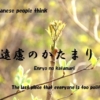
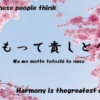
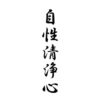
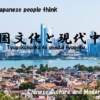
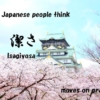

ディスカッション
コメント一覧
まだ、コメントがありません